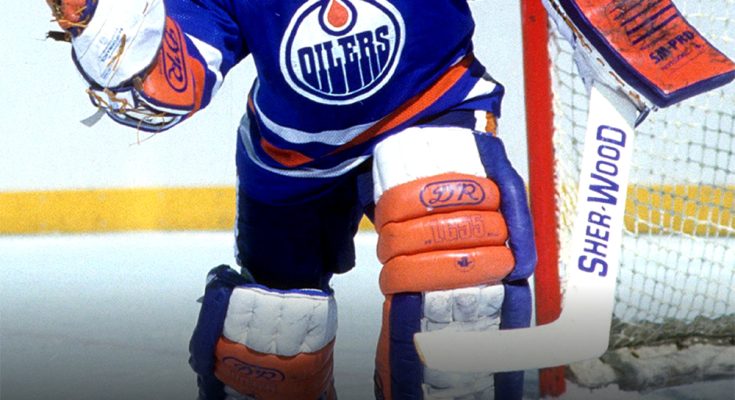Grant Fuhr: The Unyielding Goalie Who Faced Every Challenge Head-On, Delivered in Hockey’s Toughest Moments, and Became the Quiet Hero Behind Edmonton Oilers’ Greatest Triumphs When It Mattered Most
Grant Fuhr didn’t post the cleanest stat lines or play with the flashiest style. He wasn’t chasing shutouts or padding his save percentage. What he chased was wins—and more often than not, he got them. In the chaos of 1980s NHL hockey, where goals came in bunches and defense sometimes felt optional, Fuhr was the calm at the center of a whirlwind. He was the steady hand behind one of the most explosive dynasties the league has ever seen.
While Wayne Gretzky, Mark Messier, Jari Kurri, and Paul Coffey lit up scoreboards and highlight reels, Fuhr quietly stood his ground in net for the Edmonton Oilers. Facing relentless pressure and an onslaught of high-danger chances, Fuhr never flinched. He didn’t throw tantrums or point fingers. He didn’t need to. He just stopped the puck—especially when it mattered most.
Ask anyone from those Oilers teams what Fuhr meant to them, and they’ll say the same thing: trust. In big moments, Fuhr showed up. Whether it was the final minutes of a tied playoff game or a momentum-swinging penalty kill, he had a knack for making the save that mattered—not always the one that would look best on a stat sheet, but the one that gave his team belief.
What separated Fuhr from so many others was more than raw talent. It was his mental strength, his calm under pressure, and his selfless approach to the game. He wasn’t out there for personal accolades. He played for his team, and they knew it. That kind of loyalty and focus built a foundation of confidence that helped power the Oilers to five Stanley Cups during his time with the team.
Fuhr’s personal story added even more weight to his legacy. In 1988, after being suspended for substance use, he didn’t shy away from the fallout. He took accountability. He came back. And he continued to play at an elite level—earning respect not just for his skills, but for his honesty and resilience. He proved that strength doesn’t always roar; sometimes, it’s quiet, steady, and unwavering.
His individual accomplishments speak for themselves: a Vezina Trophy in 1988, 79 games played that season—an unheard-of workload for a goalie—and a starring role in Canada’s 1987 Canada Cup victory. But perhaps even more important was the role he played off the ice. As the first Black player inducted into the Hockey Hall of Fame, Fuhr was a quiet trailblazer. He didn’t carry a banner or deliver speeches, but he showed an entire generation what was possible.
Grant Fuhr wasn’t about perfection—he was about presence. He didn’t always stop every shot, but he made the save when it counted. He didn’t chase the spotlight, but he earned something far more enduring: the love of his teammates, the admiration of fans, and a legacy built on toughness, humility, and quiet leadership.
In the end, Fuhr was more than just a goalie. He was a rock. A fighter. A symbol of calm in a storm. And when his team needed him most, he was always there.



